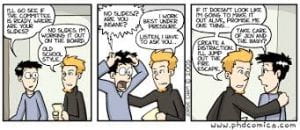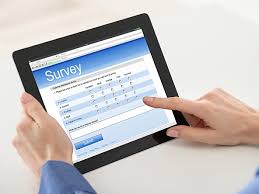 Nothing marks the first year of doctoral training quite like one’s preparation for The Upgrade. It actually sounds like a made-for-television special or even an independent film. Needless to say, it is more assuredly neither.
Nothing marks the first year of doctoral training quite like one’s preparation for The Upgrade. It actually sounds like a made-for-television special or even an independent film. Needless to say, it is more assuredly neither.
From my perspective, it has been business as usual. I have been preparing for upgrade wholeheartedly for no less than six months. Now that I am approaching my twelfth month, an having completed three years of required training last month (in one year no less!), I am fully devoting my energies to all things upgrade.
In actuality, this is not completely true. For the past two weeks, I’ve also been knee-deep in starting my research from a data collection via multiple online focus groups, transcriptions and starting to tag text within my qualitative software application for analysis. Oh yes, literature searching continues unabated as well.
However, for the purposes of this blog post…I shall pretend that I have only those concerns relating to casting of the MPhil shackles and becoming a full-fledged PhD…all made possible by The Upgrade.
And what of these shackles, anyway? Depending upon whom you speak with, the MPhil process is shroud in much mystique and sine qua non. There are others, considerably more experienced than I who will tell you that “the Upgrade is nothing but a formality, a bunch of tick-boxes put in place to prevent the University and student from failing one another”.
Wait a minute…failure?!?!
“Not to worry!” my informant suggests. “It merely ensures essentials such as your ability to speak English, write appropriately, ascribe to a timetable, and produce research that is not underwhelming in scope or unimaginably impossible to complete. You’ll have no problem…I wouldn’t worry.”

Which, of course, sets worry in to motion.
Being the A+ type multiplied by infinity personality-type that I am (e.g. aggressive, ambitious, controlling, highly competitive, preoccupied with success, workaholic and lack of patience), I begin to sweat even more of the details of something that I have been preparing for…seemingly for…for…forever!.
 It was with great desire, then, that I obtain guidance from my supervisors in order to best develop an upgrade roadmap avoiding, at all cost, a road to perdition. So with that, I await feedback regarding my Upgrade Report, so that I may carve out a compelling Google Sheets Presentation.
It was with great desire, then, that I obtain guidance from my supervisors in order to best develop an upgrade roadmap avoiding, at all cost, a road to perdition. So with that, I await feedback regarding my Upgrade Report, so that I may carve out a compelling Google Sheets Presentation.
And yet, I am already aware that there is a good portion of my Upgrade Report (that will appear within said presentation) that will now likely never become actionable.
Why?
Owing to COVID-19, those myriad face-to-face focus groups, surveys, questionnaires and trials of pilot technologies requiring in-person activities must now all be (and some already have been) migrated online. In fact, the overall tenor of the proposed research has taken on less of a prototyping, engineering vantage point. These modifications have occurred in favour of those that are considerably more scientific and proof of concept/research.
In modulating the original plan, the idea now is that a post-doc may result in a more engineering-funded objective leading to prototype development. All of this hinges upon a PhD with substantial research that is compelling to attract funding and sponsorship. And the road to PhD, at least today, travels through…you guessed it:
The Upgrade!
At least this is what my esteemed supervisors are suggesting. And that which I am completely trusting in as the end-game result. So with keyboard in hand, I await my monthly supervisory meeting taking place in less than one week. I’m hopeful that my Upgrade Report meets with approval, that my presentation may reflect that which is within the report, and that my Upgrade Panel, Upgrade Appointment and all associated departmental paperwork is “in the works”.
Fingers crossed. We shall see within a week’s time.







